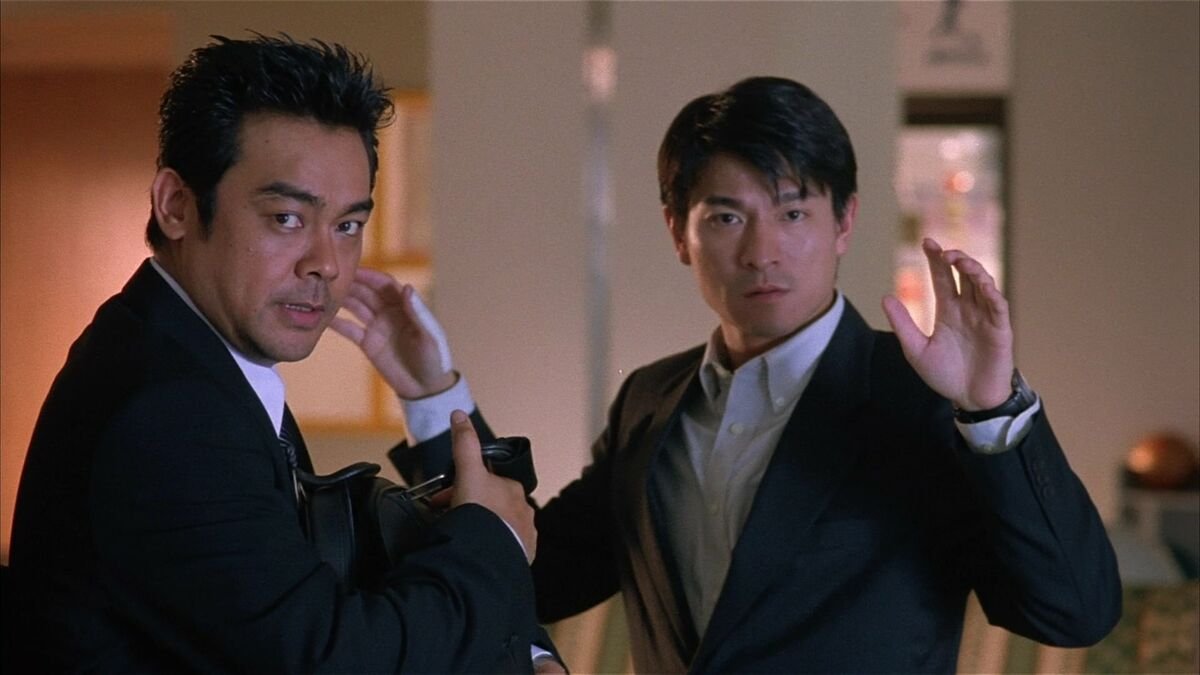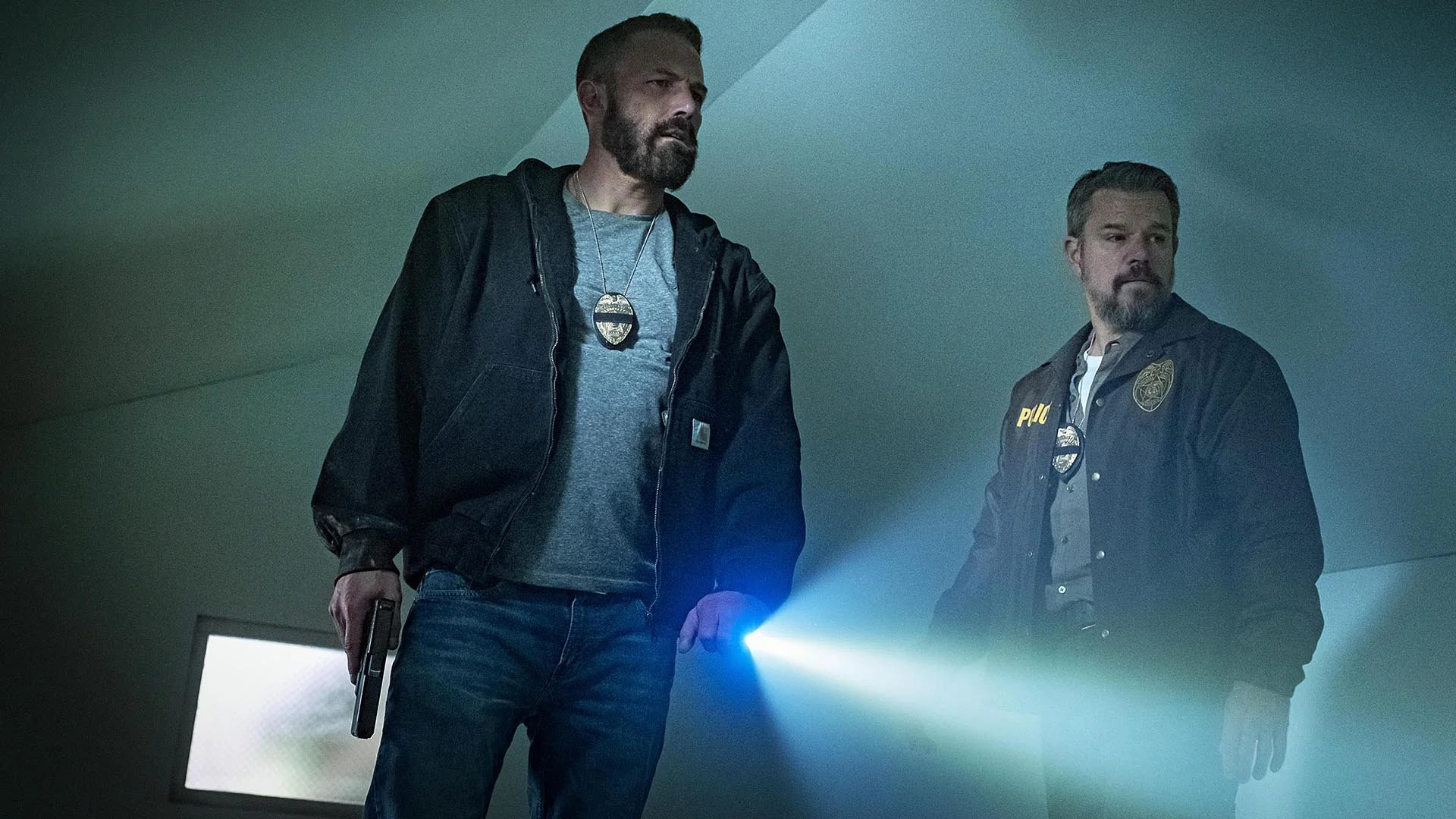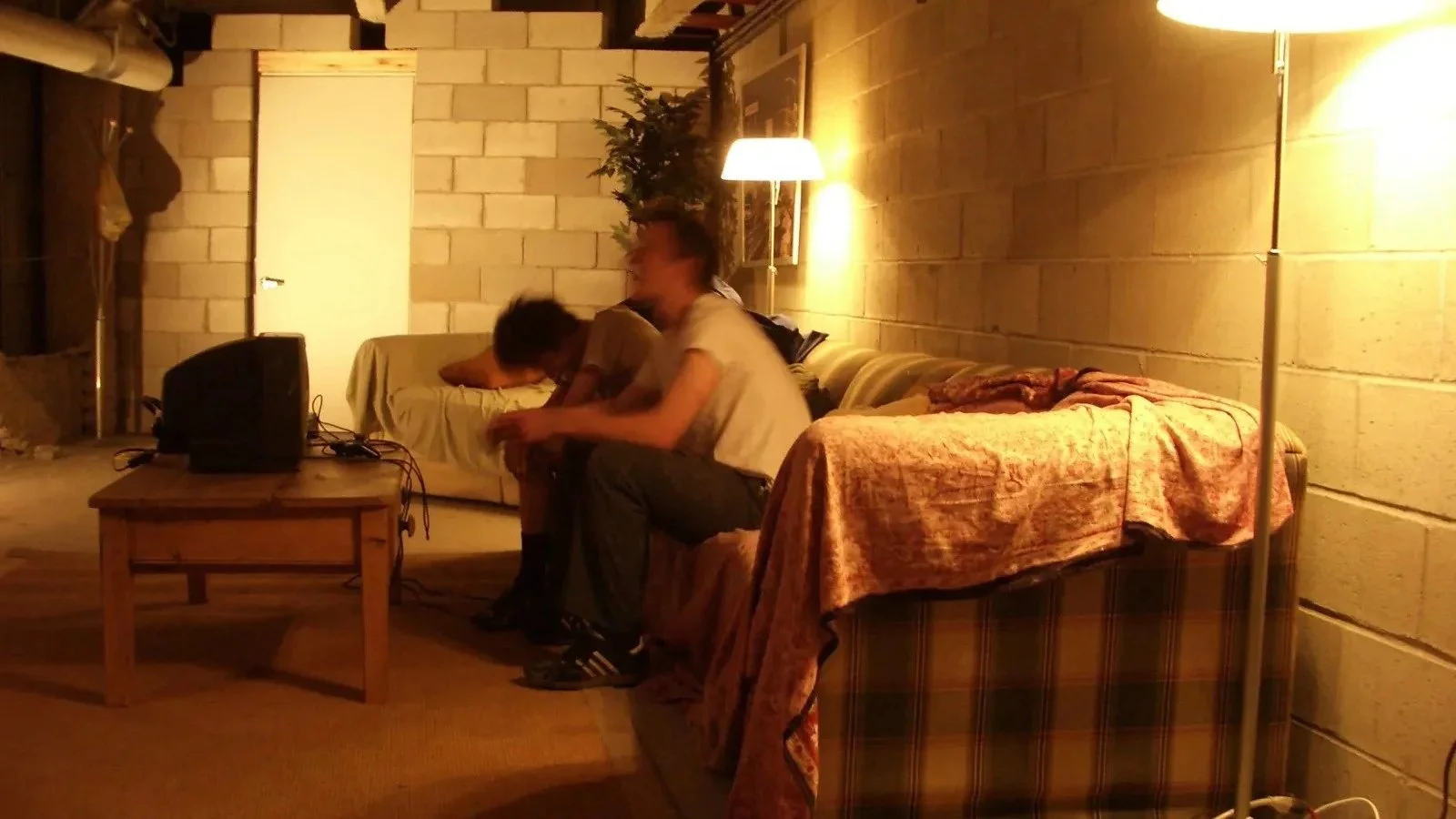Review: Running Out of Time (1999)
A brilliant cop and a clever criminal are locked in a battle of wits. Only one of them can come out ahead. However, each encounter between the two builds their mutual respect and helps them understand that they have more in common with each other than they could ever have with others. This scenario might sound like the classic set-up for a Michael Mann film and you’d be right, but it’s also the concept for Running Out of Time, a mid-career Johnnie To movie that came out during his transition from Hong Kong genre gun-for-hire to one of Asian cinema’s preeminent auteurs. This 1999 crime comedy pairs two of To’s most brilliant leading men together—Lau Ching-wan is the cop, Andy Lau the criminal—for a tight, against-the-clock thriller that is dazzlingly effective in its Mannian dualism, even as its fluid style and earnest emotionalism makes it distinctly a To film.
In Running Out of Time, Andy Lau is Cheung Wah, a terminally-ill career criminal out for one last score before he bids farewell to this mortal coil. Lau Ching-wan is police negotiator Ho Sheung-sang, a brilliant cop bored of dealing with routine hostage situations and making up for the mistakes of his blundering boss (an amusing Benz Hui). When their paths cross, they see the opportunity for something new and novel: a chance to go up against an equal. And so Cheung challenges Ho to a contest where he has 72 hours to pull off a heist and Ho has 72 hours to arrest him. The film plays out as a fast-paced narrative cat-and-mouse game between Cheung and Ho.
The film’s primary pleasure is watching two great leading men play off each other. Lau Ching-wan is the more cerebral and cynical of the two stars. In his collaborations with To, he often plays troubled geniuses or tragic heroes, sometimes both in the same role as in Mad Detective (2007). His knowing grimace captures the effectiveness of his performance, showing he’s in on the joke even if he’s powerless to stop it. Lau plays the cop here, the smart guy who has to deal with a bumbling boss and hapless crew, and so is pulled into Cheung’s contest because it’s the first thing he’s done in years that truly challenges him.
Andy Lau plays the crook, a brilliant thief with a mysterious personal motivation who has nothing to lose due to his cancer diagnosis. Lau is the epitome of the Hong Kong megastar. He’s incredibly handsome and charming but he also hides such deep sadness behind his movie star looks. Lau is also an egoless performer, willing to do anything for the role, which is why we get him sporting drag in one scene, acting like a complete fool in another. But beneath it all is the desperation and loneliness that led Cheung to reach out to Ho in the first place.
We watch Ho and Cheung bond as they’re pulled into a plot regarding a blue diamond and a rival gang that has links to Cheung’s late father. Both Cheung’s diagnosis and his contest with Ho gives the film the infectious pace of a constant countdown. Not that the film needs additional momentum when Johnnie To’s camera provides so much already.
To’s fluid camerawork enlivens most every scene, whether during a rooftop confrontation between Ho and Cheung or a car chase through the streets with a bomb ticking down aboard the vehicle. To’s camera is more subtle than some of his contemporaries: he doesn’t amplify violence through multiple angles to the degree that John Woo does, or move the camera with such propulsion as Tsui Hark. But his scenes are always shot dynamically, taking advantage of the available space and positioning the characters to amplify the dramatic scenario. It’s a wonder that To typically doesn’t storyboard since the precision of the final movements is always what registers the most; his filmmaking hardly feels spontaneous even if it often is.
In Running Out of Time, you get a stylish and calculated visual approach that adds energy to every scene, and an attention to character and emotion that accrues surprising heft throughout the runtime. By the film’s end, you don’t just feel the bonds of professional admiration between Ho and Cheung, like you do in a Michael Mann film such as Heat; you feel a warm affection that allows a fleeting escape from loneliness for the characters. The result is a film that could be a minor genre confection with appealing stars and slick style, but like To’s later Don’t Go Breaking My Heart (2011), it develops genuine pathos.
The stars are essential here too, though. Running Out of Time 2 from 2001 would bring Lau Ching-wan back as Inspector Ho, but Andy Lau’s Cheung is predictably absent. That film desperately feels his absence. Hence, even a similar scenario with similar style doesn’t produce such a fun result as we get here, where To’s professional romanticism and affection for his characters weds with two bonafide movie stars showcasing their genuine chemistry on screen.
8 out of 10
Running Out of Time (1999, Hong Kong)
Directed by Johnnie To; written by Yau Nai-hoi, Laurent Courtiaud, Julien Carbon; starring Andy Lau, Lau Ching-wan, Yoyo Mung, Waise Lee, Benz Hui, Lam Suet, Ruby Wong.



This mockumentary starring Matt Johnson and Jay McCarrol is a complex metafiction farce and a loving portrait of friendship and Toronto.